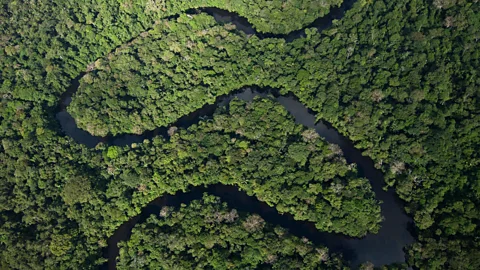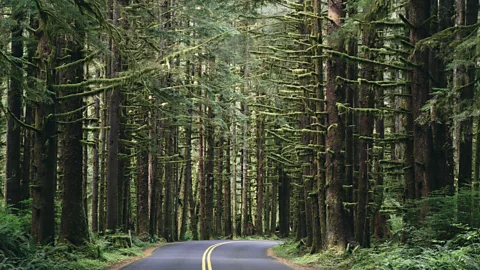Why and how does BBC Travel count carbon?
 Wildlife GmbH Alamy
Wildlife GmbH AlamyOn sustainability-themed BBC Travel stories, you'll see an estimate of the carbon it took to report that article. How do we get that figure and why do we calculate it?
Like almost every human activity in the world, journalism releases carbon dioxide. Reporters often need to travel to reach a story, whether across a city or across the world – and this is especially true in travel journalism.
At BBC Travel, we're committed to encouraging responsible travel and telling stories with cultural sensitivity and sustainability in mind. Whenever possible, we rely on journalists living locally in the regions we're covering to report from the ground. This helps us tell global stories from diverse perspectives while simultaneously limiting our carbon footprint.
But while we strive to keep our journalists' travel to a minimum, that doesn't eliminate our carbon emissions entirely, and we want to be open with our readers about the impact we have. That's why, in a new BBC Travel pilot programme, each story in our Green Getaways and Thoughtful Travel series includes a figure estimating the carbon emissions associated with reporting it.
How do we get these figures?
When deciding whether to assign a story, determining how much travel is required is a key factor for us. If a reporter plans to take a long-distance flight to reach their story, we will question whether it is necessary and will explore possible alternatives. The reason is because a single flight from London to, say, Cape Town, for example, emits 1.6 tonnes of carbon – the equivalent of running an average home's electricity for nearly 100 days.
Instead, we would encourage them to look for stories closer to home or discuss whether it's possible to do the story justice with reporting by phone and video calls. If a longer-distance story is assigned, we might ask the reporter to look around for other strong stories in the area, to make the most of their travel emissions.
Once a story has been commissioned, we ask the reporter to submit a list of the modes of transport they took and the approximate distance for each type of travel (such as plane, train, car, etc), and we use an independently audited carbon calculator for travel to estimate emissions.
 Mint Images Limited/Alamy
Mint Images Limited/AlamyLimitations
Because of the complexity of travel, we can't directly measure the exact carbon emissions from any specific story. Everyday trains and buses aren't fitted with emissions-measuring devices, for example, so we can't be sure exactly how much our journalist-passenger emitted on his or her journey.
There are other factors that some might argue should be counted in a story's carbon emissions, too, such as the internet usage and electricity involved in producing stories and the emissions of the BBC staff editing them.
Looking ahead
We currently use the best tools available to monitor our emissions from transport. As new ways to estimate carbon emissions in the complex connected digital and analogue worlds improve, we will refine our carbon-counting strategy to match.
We also hope to expand our pilot programme to include carbon emissions estimates on all our BBC Travel stories.
The calculations involved are complex and imperfect. However, we want to be open about our carbon footprint and we want to make it smaller, using whatever tools are currently available. We hope that by publishing stories highlighting sustainable, regenerative and responsible travel, we're not only inspiring our readers to fall in love with the world every day, but to do their part to care for it, too.
---
Join more than three million BBC Travel fans by liking us on Facebook, or follow us on Twitter and Instagram.
If you liked this story, sign up for The Essential List newsletter – a handpicked selection of features, videos and can't-miss news delivered to your inbox every Friday.
